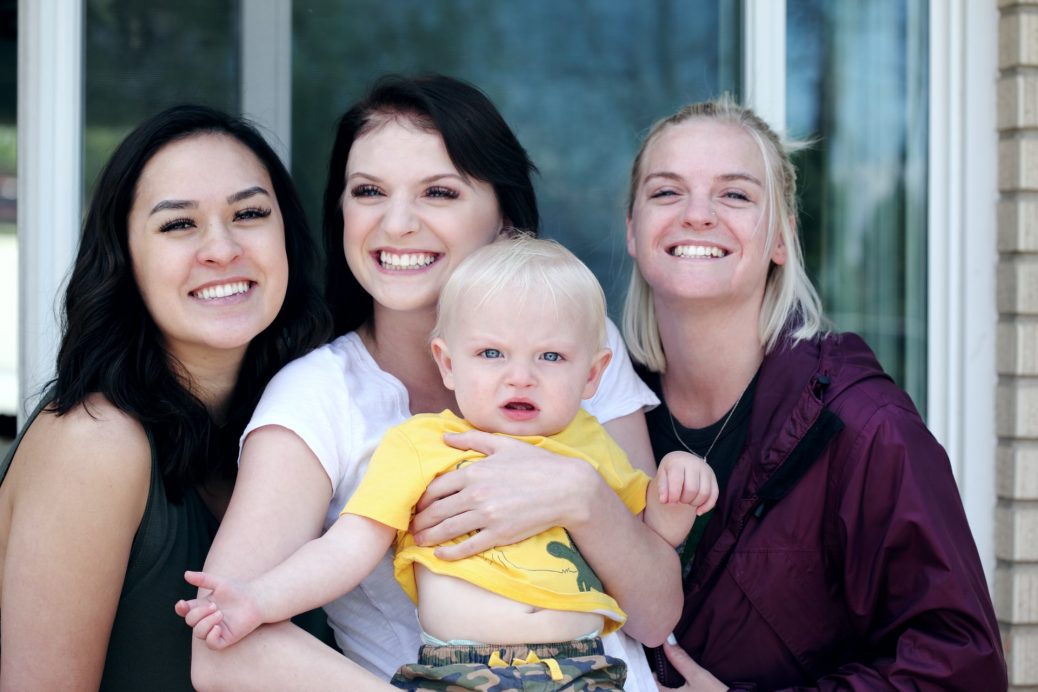Postpartum Depression: Mother’s Journey to Life is a personal account of one woman’s experience with postpartum depression. The article chronicles the mother’s journey from feeling overwhelmed and hopeless to finding hope and healing. It is a powerful experience of resilience and hope, and it offers a unique perspective on a common but often misunderstood condition.
Postpartum depression is a serious medical illness that affects up to 1 in 7 women after childbirth. It is characterized by a persistent feeling of sadness, hopelessness, and worthlessness. Women with postpartum depression may also experience anxiety, irritability, fatigue, difficulty bonding with their babies, and thoughts of harming themselves or their babies.
Postpartum depression (PPD) is a type of depression that can occur after childbirth. It is a serious medical condition that can affect a woman’s physical and emotional health. PPD can cause a wide range of symptoms, including sadness, anxiety, fatigue, irritability, and difficulty bonding with the baby.
PPD is a common condition, affecting up to 1 in 7 women after childbirth. It can occur any time within the first year after giving birth, but it is most common in the first few weeks. PPD is thought to be caused by a combination of factors, including hormonal changes, stress, and physical changes during pregnancy and childbirth.
If you think you may have PPD, it is important to talk to your doctor. Treatment for PPD usually includes medication, therapy, and lifestyle changes. With treatment, most women with PPD can recover and go on to have happy and healthy relationships with their babies.
Symptoms of Postpartum Depression
Here are some of the symptoms of postpartum depression:
- Depressed mood: Feeling sad, hopeless, or empty.
- Loss of interest in activities that were once enjoyable.
- Changes in appetite: Eating more or less than usual.
- Trouble sleeping: Insomnia or sleeping too much.
- Feelings of worthlessness or guilt.
- Difficulty concentrating or making decisions.
- Recurrent thoughts of harming yourself or your baby.
- Postpartum depression (PPD) is a common and serious medical illness which describes the mother’s journey to a life that can affect women after childbirth. It is not simply the “baby blues,” which are usually mild and go away independently within a few days or weeks. PPD can last for weeks, months, or even years if it is not treated.
Causes of Postpartum Depression
The exact cause of PPD is unknown, but it is thought to be caused by a combination of factors, including:
Hormonal changes:
After childbirth, there is a dramatic drop in the levels of estrogen and progesterone, which can trigger mood changes.
Physical changes:
Childbirth can be a physically demanding experience, and the changes to a woman’s body can also contribute to mood changes.
Lifestyle changes
Starting with postpartum depression mother’s journey can be a major life change, and the stress of juggling work, childcare, and other responsibilities can also contribute to PPD.
Personal or family history of depression
Women who have a personal or family history of depression are at an increased risk for developing PPD.
Difficult or stressful life events
Women who have experienced difficult or stressful life events, such as the death of a loved one, job loss, or financial problems, are also at an increased risk for developing PPD.
Who is at risk for postpartum depression?
Anyone can experience PPD, but some women are at an increased risk. These include:
- Women who have a personal or family history of depression.
- Women who have experienced difficult or stressful life events, such as the death of a loved one, job loss, or financial problems.
- Women who have had a difficult pregnancy or childbirth.
- Women who are single, young, or have a low socioeconomic status.
- Women who have a history of trauma or abuse.
- Women who have a history of anxiety or other mental health conditions.
Tips for Coping with Postpartum Depression
Here are some tips for coping with postpartum depression:
- Get enough sleep. When you’re well-rested, you’ll have more energy to cope with the demands of motherhood.
- Eat healthy foods. Eating nutritious foods will help improve your mood and energy levels.
- Exercise regularly. Exercise is a great way to relieve stress and improve your mood.
- Spend time with loved ones. Social support is important for your mental health.
- Do things you enjoy. Make time for activities that you find relaxing and enjoyable.
- Talk to your doctor. If you’re struggling with postpartum depression, talk to your doctor. They can help you develop a treatment plan that’s right for you.
How is postpartum depression diagnosed?
Postpartum depression is diagnosed by a healthcare provider. There is no single test for PPD, but your healthcare provider will likely ask you about your symptoms and medical history. They may also perform a physical exam and order blood tests to rule out other medical conditions.
The most common screening tools for PPD are the Edinburgh Postnatal Depression Scale (EPDS) and the Patient Health Questionnaire-9 (PHQ-9). The EPDS is a 10-question self-report questionnaire, and the PHQ-9 is a 9-question self-report questionnaire. Both questionnaires can be used to screen for PPD, but the PHQ-9 is more widely used.
If you score high on either the EPDS or the PHQ-9, your healthcare provider will likely recommend further evaluation. This may include a more in-depth interview with you, a physical exam, and blood tests.
Treatment for postpartum depression
If you are diagnosed with PPD, there are a number of treatment options available. These include:
- Medication: Antidepressants are the most common treatment for PPD. They can be effective in relieving symptoms, but they can also have side effects.
- Talk therapy: Talk therapy, also known as psychotherapy, can help you to understand and cope with the symptoms of PPD.
- Support groups: Support groups can provide you with emotional support and practical advice from other women who have been through PPD.
- Lifestyle changes: Lifestyle changes, such as getting enough sleep, eating a healthy diet, and exercising regularly, can also help to improve your mood and energy levels.
With treatment, most women with PPD can recover and go on to have happy and healthy relationships with their babies.
How can I prevent postpartum depression?
There is no surefire way to prevent postpartum depression (PPD), but you can do several things to reduce your risk. These include:
- Talk to your doctor about your risk factors. If you have a personal or family history of depression, or if you have experienced difficult or stressful life events, talk to your doctor about your risk for PPD. They can help you develop a plan to reduce your risk.
- Get prenatal care early and regularly. Prenatal care can help you identify and manage any health conditions that may increase your risk for PPD.
- Take care of yourself during pregnancy and after childbirth. Get enough sleep, eat a healthy diet, and exercise regularly. These things can help improve your mood and energy levels and reduce your stress levels.
- Build a strong support network. Talk to your partner, family, and friends about your feelings and concerns. They can provide you with emotional support and practical help.
- Be patient with yourself. Becoming a new parent is a big adjustment. It is normal to feel overwhelmed and stressed at times. Give yourself time to adjust to your new role and bond with your baby. Shifting Your Toddlers From Crib to Bed
What resources are available for women with postpartum depression
There are many resources available for women with postpartum depression. These resources can provide support, information, and treatment options.
Here are some of the most common resources a mother can take
- during her postpartum depression journey.
- Your doctor: Your doctor can diagnose postpartum depression and recommend treatment options. They can also provide you with support and information.
- Therapist: A therapist can help you understand and cope with the symptoms of postpartum depression. They can also teach you coping skills and help you develop a plan for recovery.
- Support groups: Support groups can provide you with emotional support and practical advice from other women who have been through postpartum depression.
- Online resources: There are many online resources that can provide information and support for women with postpartum depression.
- Government agencies: Some government agencies, such as the Substance Abuse and Mental Health Services Administration (SAMHSA), offer resources for women with postpartum depression.
- Postpartum Support International (PSI): PSI is a nonprofit organization that provides support and information to women with postpartum depression and their families.
- The National Alliance on Mental Illness (NAMI): NAMI is a national organization that provides support and information to people with mental illness and their families.
- The American Psychological Association (APA): The APA is a professional organization that provides information and resources on mental health.
- WebMD: WebMD is a website that provides information and resources on a variety of health topics, including postpartum depression.
Conclusion
The article Postpartum Depression: Mother’s Journey to Life is a reminder that postpartum depression is a severe medical state that affects many women. It is significant to seek help if someone is struggling with this situation.
OutBound Sources
National Institute of Mental Health (NIMH): The NIMH website offers comprehensive information on postpartum depression, its symptoms, risk factors, and treatment options. You can visit their website at www.nimh.nih.gov.
American Psychological Association (APA): The APA website provides resources and information on various mental health conditions, including postpartum depression. You can visit their website at www.apa.org.
Mayo Clinic: The Mayo Clinic website offers detailed articles on postpartum depression, its causes, symptoms, diagnosis, and treatment. You can visit their website at www.mayoclinic.org.


